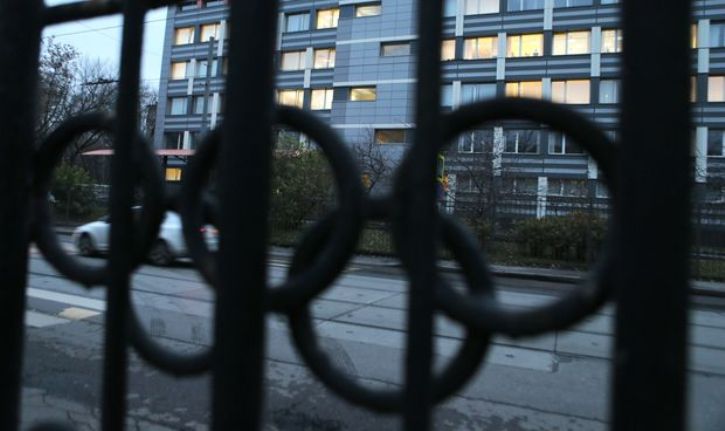The governing body of world athletics on Tuesday maintained Russia’s ban from track and field over mass state-backed doping, citing two conditions before the powerhouse can return to international competition.
Rune Andersen, head of the IAAF’s taskforce on Russia, said Russian authorities, in the form of the Russian Anti-Doping Agency (RUSADA), had to grant access to data from testing of samples at a Moscow laboratory from 2011 to 2015.
The second condition is that Russia must pay the IAAF’s costs incurred in the work of the taskforce and in bringing or defending Russian cases at the Court of Arbitration of Sport (CAS).
Access to the samples would hand the Athletics Integrity Unit, the independent body that manages all doping and non-doping integrity-related matters in athletics, the opportunity to determine whether any suspicious findings should be investigated.
– ‘No assurances’ –
“I hope they’ll deliver the data by the end of this year,” Andersen said of the samples taken and stored in the Moscow laboratory. “But I cannot go any further than that.
“We’ve received no assurances it will be delivered to us directly.
“Assurances have been given to WADA (World Anti-Doping Agency) and WADA have set a deadline of December 31 to receive the data. We’ll have to rely on receiving the data from WADA before handing it to the AIU to examine the data before we are satisfied that the data is correct data.”
The International Association of Athletics Federation’s decision means Russia will not, for the moment, be able to compete under its own flag at the European Indoor Championships in Glasgow in February 2019, with the IAAF Council not scheduled to meet again until March.
Russian athletics federation (RUSAF) president Dmitry Shlyaktin said the decision was no surprise.
“It is not a surprise but we did have hope, because RUSAF has worked very hard (to comply with IAAF demands),” he told Interfax news agency.
He said negotiations were underway on debt repayment and access to doping control data.
Andersen insisted that the task force’s relationship with the Russians was “business-like” and expressed the view that the end was in sight after three years of talks, longer than expected.
“We see the glimmer of light (at the end of the tunnel) all the time,” he added. “There has been progress all the way. Many of the criteria has been met by Russia, either by USAF or Russian authorities,” he said.
– ‘Finely worded’ –
Andersen, however, dodged the politically sensitive question of whether he thought Russia had truly acknowledged the findings of the McLaren and Schmid reports, a major sticking point on the taskforce’s initial criteria.
“We consider that the substance of what was in the Schmid report has been met, that has been acknowledged by Russia,” Andersen said, adding that the major difference between that and the McLaren report was the absence of a reference to Russia’s FSB security service.
“There has been an acknowledgement of the involvement of persons in the state, that is clear. Whether that means that you can draw that line to say that it has been an acknowledgement of state-sponsored doping, that remains for everyone to determine on what’s been written, but it’s been finely worded by Russia.”
Russia’s athletics federation was initially banned by the IAAF in November 2015 over allegations of widespread government-backed doping fraud.
Its athletics team was barred from the 2016 Rio Olympics and also missed the IAAF World Championships in London a year later.
A number of Russian athletes, however, have been granted permission by the IAAF to compete as neutrals after meeting the exceptional eligibility criteria, essentially demonstrating that they have come through transparent anti-doping testing.
The International Olympic Committee lifted its ban on Russia at the end of the Pyeongchang Olympics while WADA in September lifted its ban on RUSADA for non-compliance.
WADA drew heavy international criticism when it voted to declare RUSADA “compliant”, before being granted access to Moscow raw data.
It responded by promising it will impose new sanctions if Russia did not cooperate by December 31 and a team visited the Russian capital last week and another is due next week to carry out an audit.
The WADA decision led RUSAF to appeal against its IAAF suspension at the Court of Arbitration for Sport. – Agence France-Presse






























